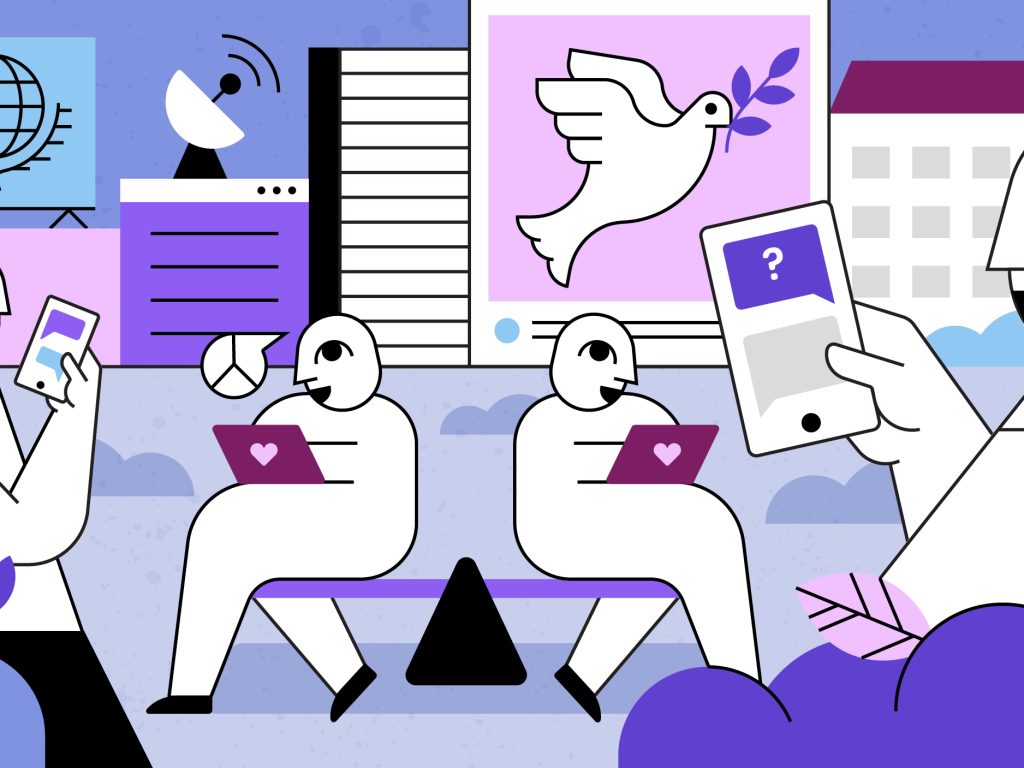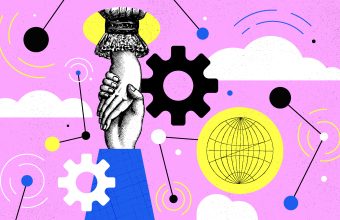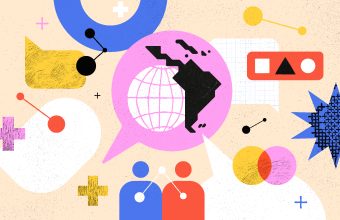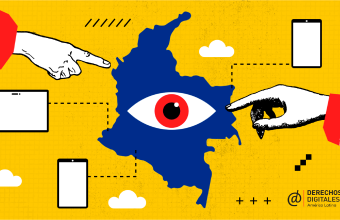For decades, we have been confronted with narratives that attempt to impose a unique idea of how technologies will save or destroy humanity. We navigate among extremes that range from optimism to pessimism, but are based on deterministic assumptions that technologies – presented as neutral – have, by themselves, the power to transform the way we live, for better or worse.
Notions such as “artificial intelligence” entail an idea of machinic power that obscures the various layers of social and cultural constructs that allow an applied sociotechnical system to operate. For example, to calculate whether or not a black-skinned woman is authorized to enter into a certain place, or if a video denouncing police violence will be made invisible because it constitutes a violation of specific content rules on a private social network platform.
These narratives do not remain in the symbolic field, but are instruments of power that have been mobilized to promote concrete practices and policies, exclusively based on technological determinism and at the expense of the protection of human rights – as we have identified in different areas in recent years in Latin America.
When the pendulum swings towards optimism, we observe situations such as the implementation of facial recognition systems in the most varied fields and without any evidence that they are effective and risk-free. Sometimes even in the absence of the necessary infrastructures for their implementation, which has left cameras unused in the region.
When the pendulum swings towards pessimism, there is a tendency to criminalize technologies and the ways of using them, instead of addressing the problems that such use reveals. We witnessed this when the entertainment industry embarked on its crusade against piracy and tools that allowed access to copyrighted content.
Global Digital Compact
Today, we are experiencing a number of overlapping crises, some of which are more visible than others. In addition to the environmental crisis, there is the health crisis manifested during the COVID-19 pandemic, as well as the various economic, political, migratory and social crises in the region. Thinking about the future seems to be almost impossible in the face of the uncertainty that prevails.
However, UN Secretary General António Guterres has proposed States to build a common action agenda that will include a Summit of the Future and, within this framework, to develop proposals for the digital future. According to the Secretary General, digital cooperation will be crucial to ensure that digital technologies focus on the common good and ensure that “the potential harms of the digital domain” do not “risk overshadowing its benefits”.
An Envoy on Technology was appointed by the Secretary General to lead the construction of a Global Digital Compact, which starts from an open process and will ultimately be defined by governments around the world.
The issues up for discussion are: connecting all people to the internet, including schools; avoiding fragmentation; protecting data; enforcing human rights online; introducing accountability criteria for discrimination and misleading content; promoting the regulation of artificial intelligence; the digital commons as a global public good.
Towards a multiple and multiplied future
This is not the first time that the UN has led a process to think about the role of technologies in society. Since the first World Summit on the Information Society, 20 years ago, we know that the same rights that people enjoy offline must also be protected online. This includes freedom of expression, access to information and privacy.
We know that there are gaps in access to technologies between and within countries. We know that these gaps include gender gaps and that privacy violations especially affect children, women and vulnerable and marginalized groups.
We also know that, in addition to States, companies (including technology companies) have a duty to respect and promote human rights, and that decisions on digital governance must involve multiple stakeholders: governments, the private sector, academia and the technical community, and civil society.
The Global Digital Compact cannot step back from these consensuses, but must also go much further. It should escape from deterministic or polarizing narratives on technologies and think of ways to overcome geopolitical and social gaps and the inequalities that are increasing as a result of technological development.
We recognize that the process has its limits and that we still need to dispute the mechanisms for the participation of civil society in the drafting of the final text and its implementation.
The open consultation carried out by the UN Tech Envoy, available until March 31st, offers the opportunity to influence on the construction of other narratives and imaginaries about technologies. Narratives that are not only anchored in the protection of rights and the search for justice and equity, but also in centuries of accumulated knowledge in the region about ways of thinking, doing and relating to technologies, different from the predominant techno-solutionism.
Escaping from the traps that lock us into a future controlled and monopolized by colonial, extractivist and exploitative models is a permanent challenge. We can seize the UN’s invitation and dare to experiment and imagine the multiple viable futures for our societies.

 Desafíos globales
Desafíos globales Transformación digital
Transformación digital Colombia
Colombia